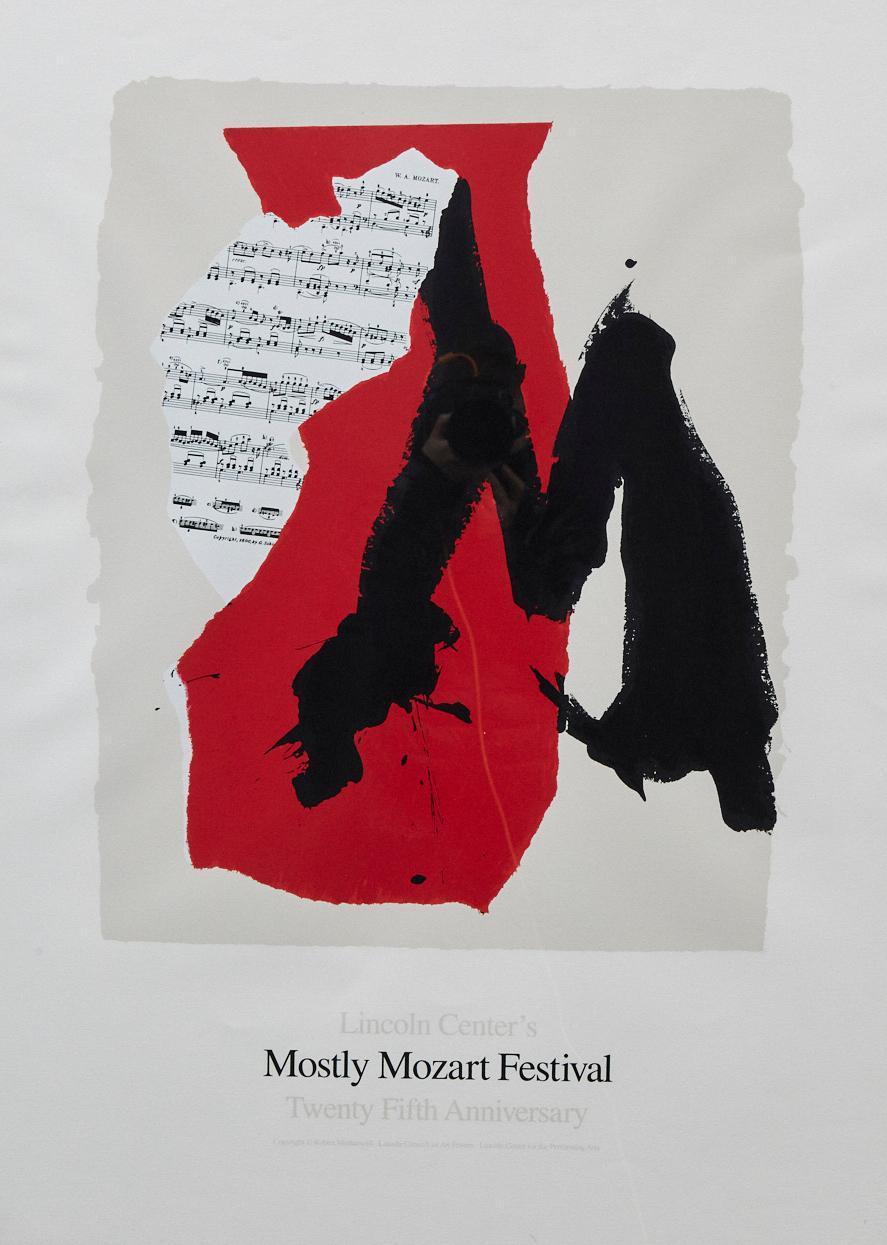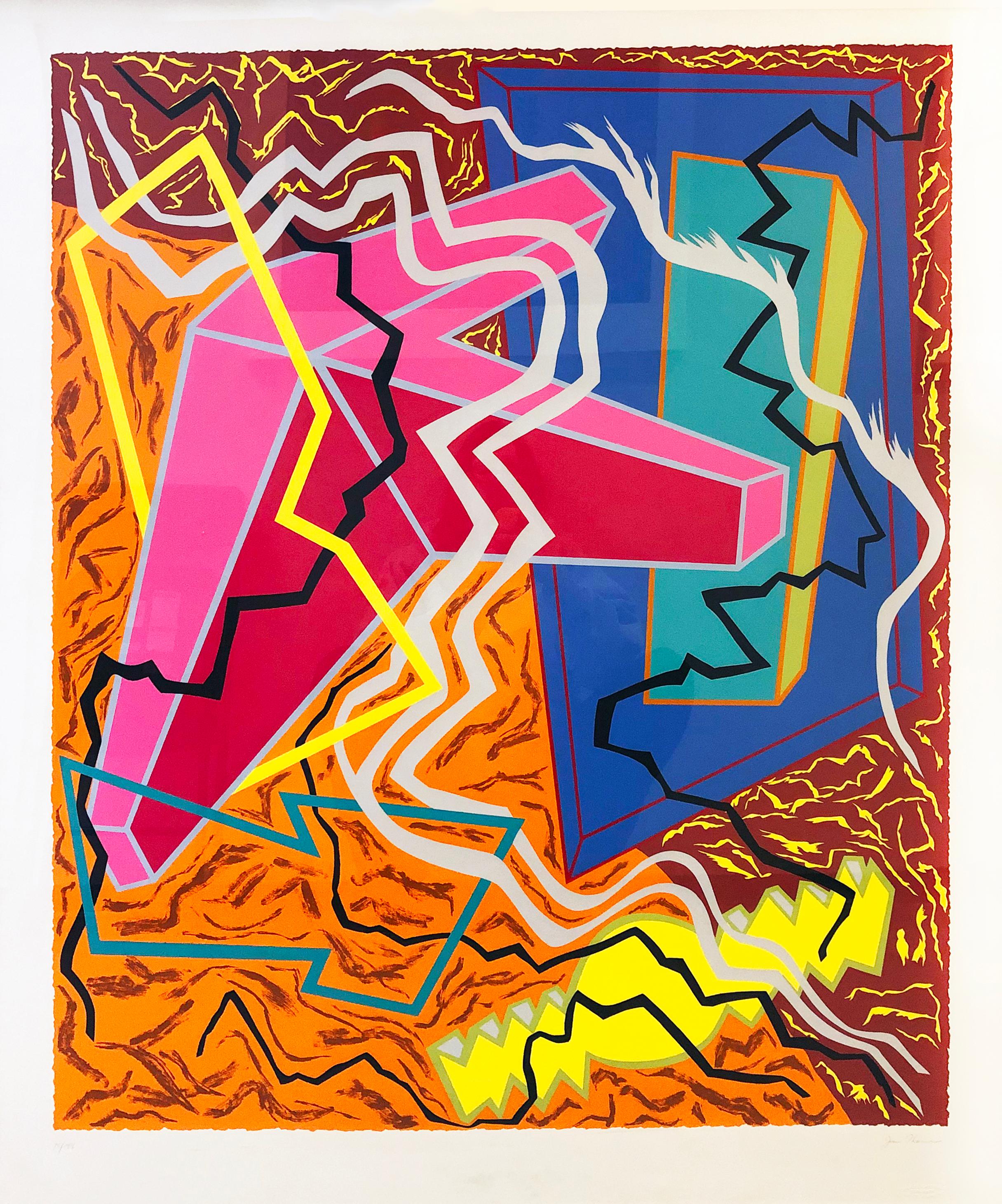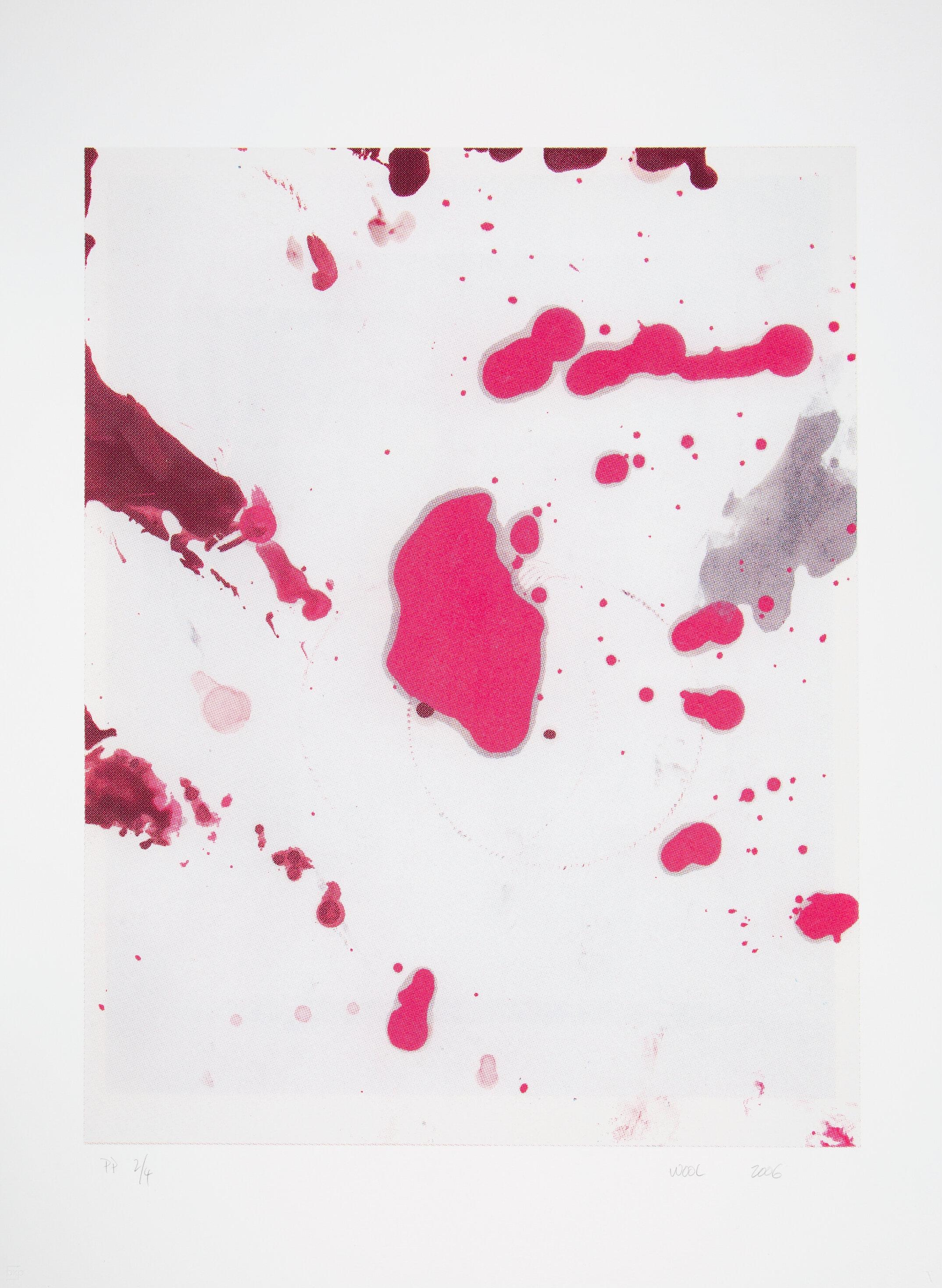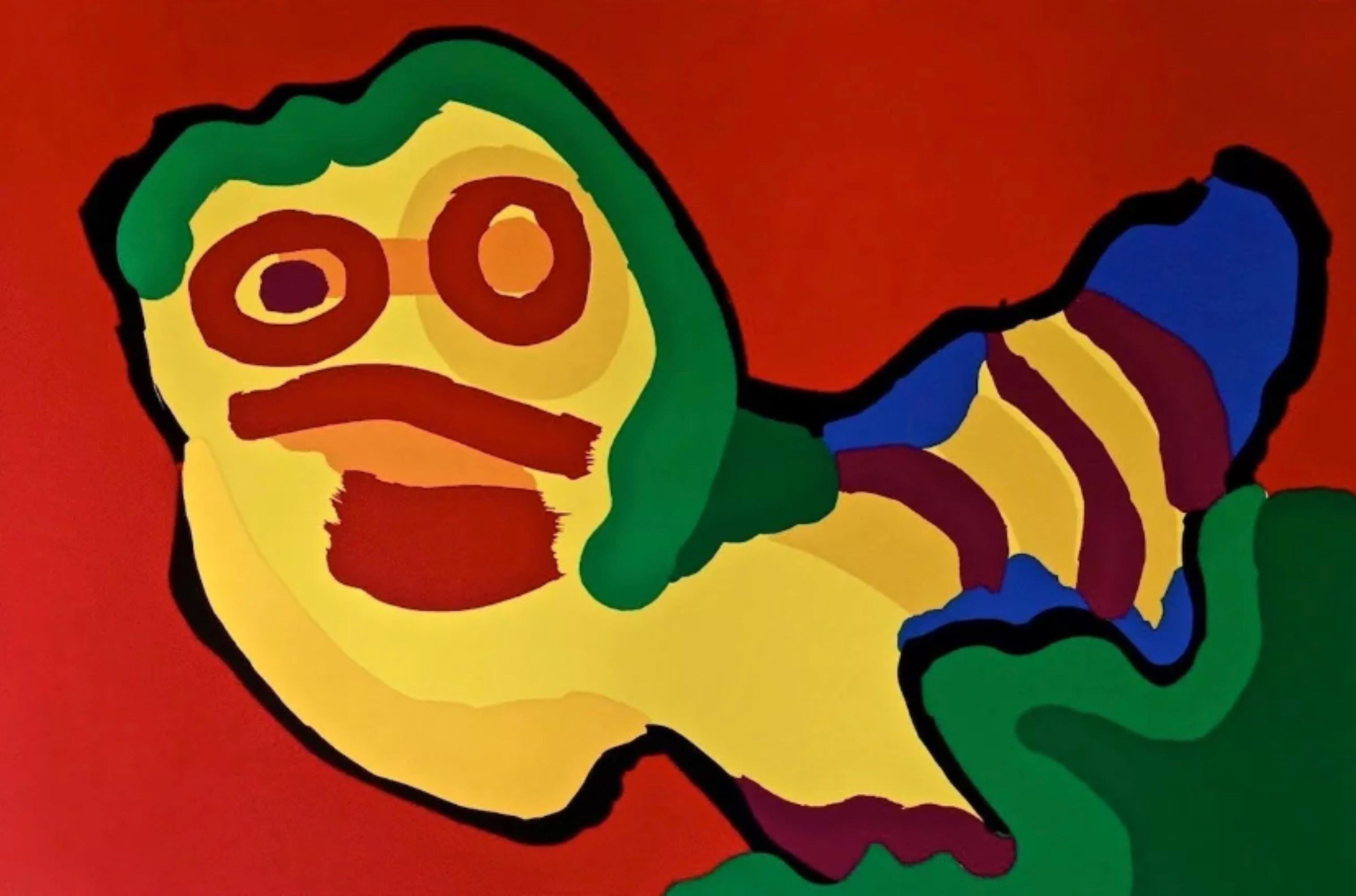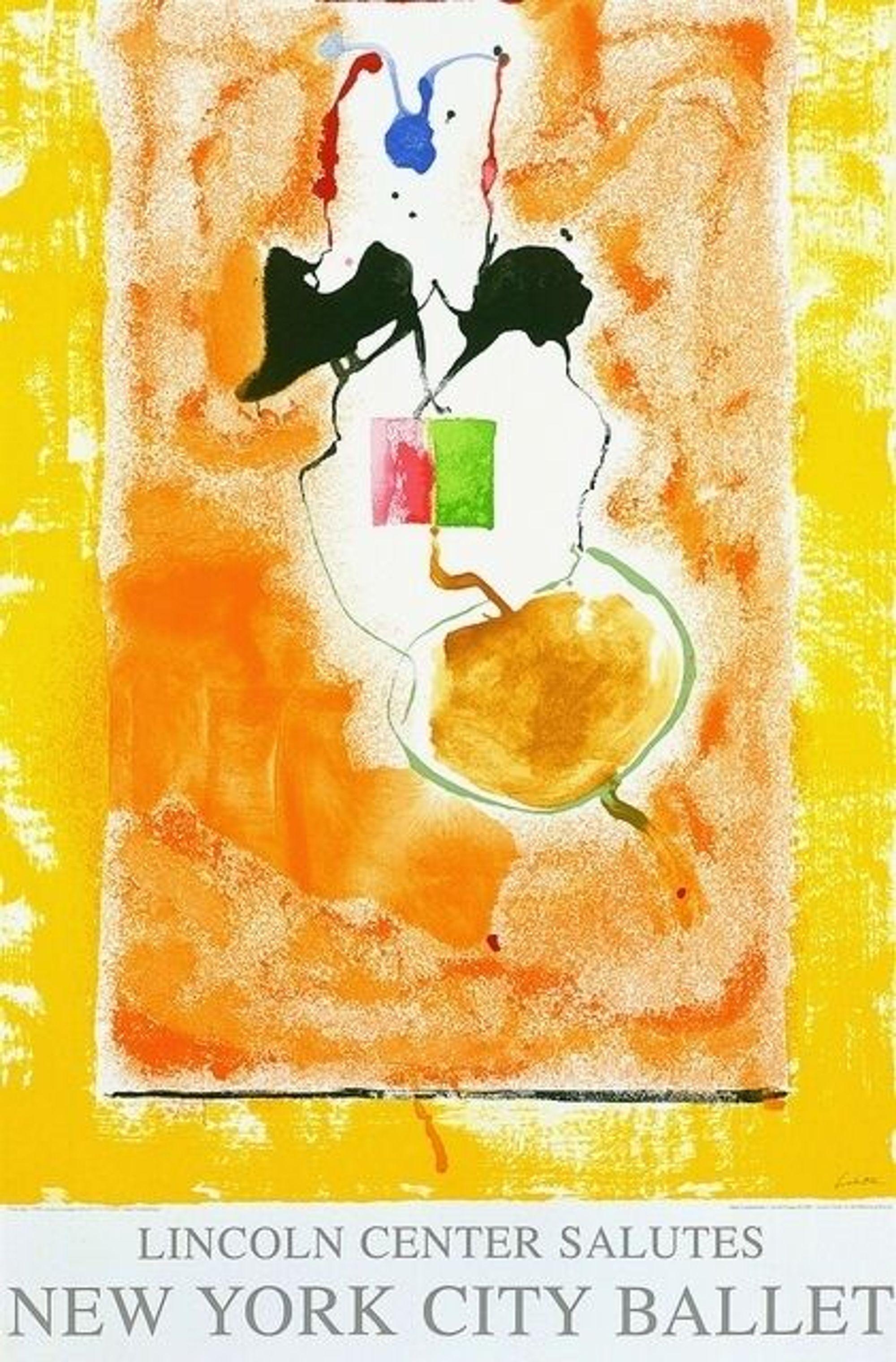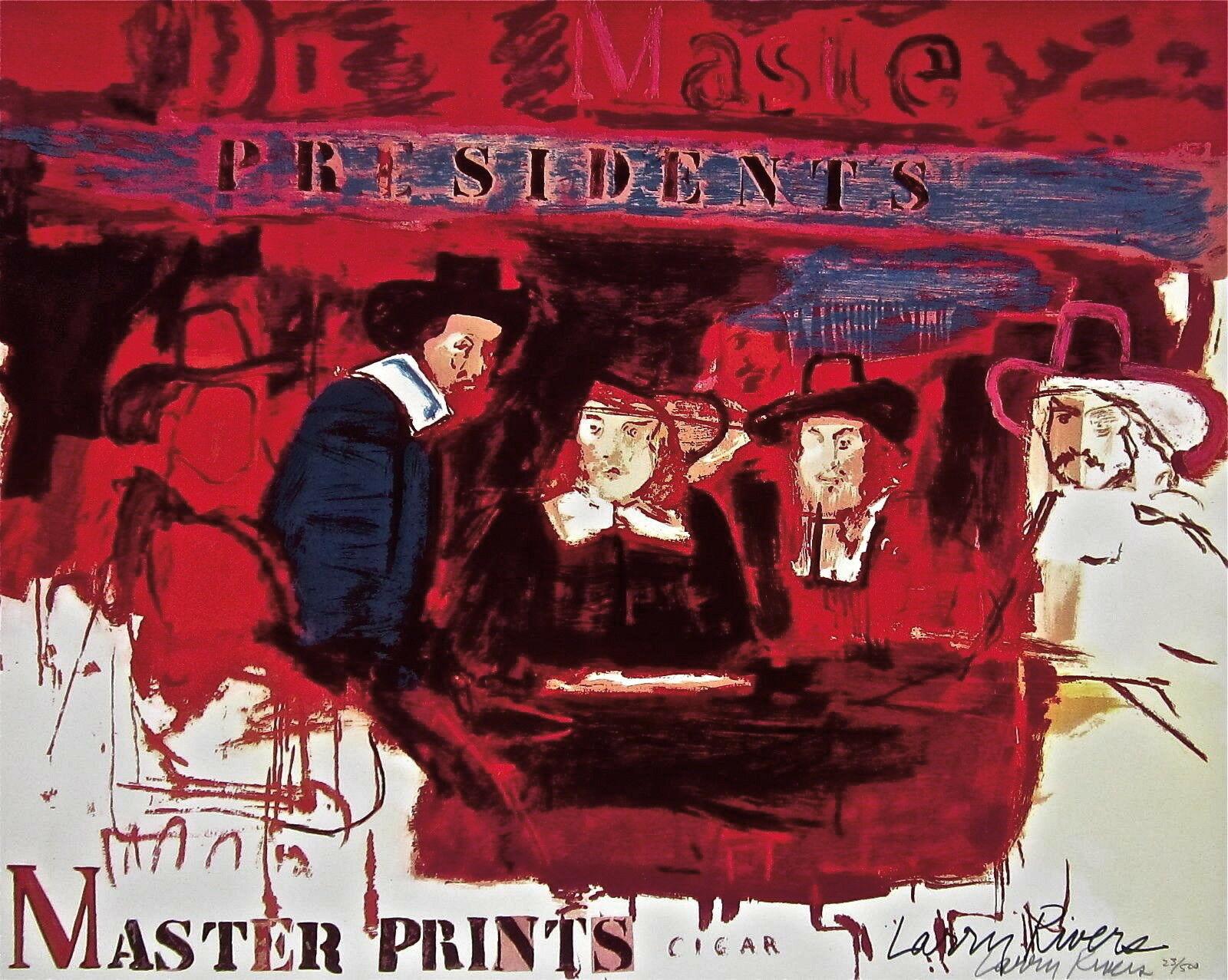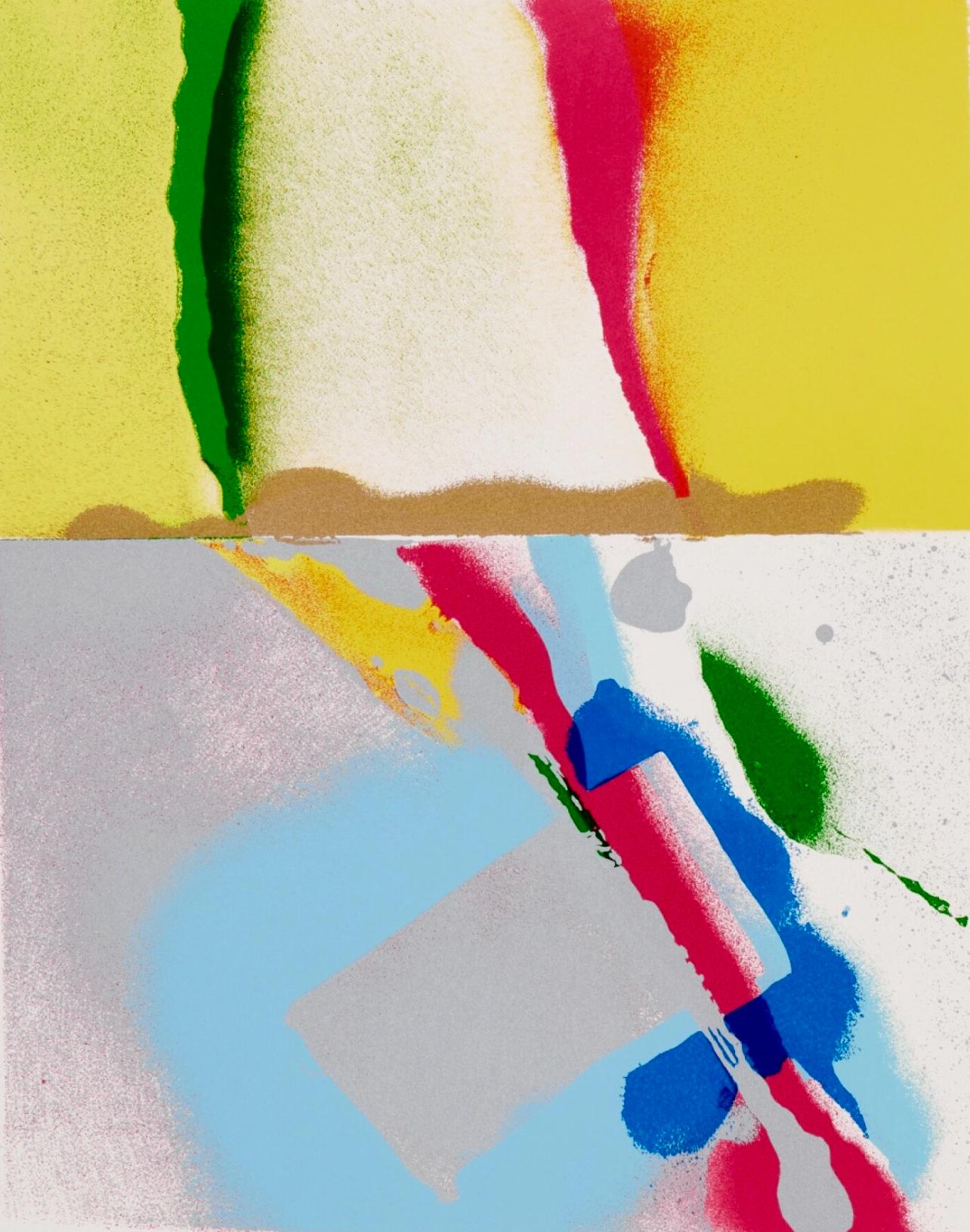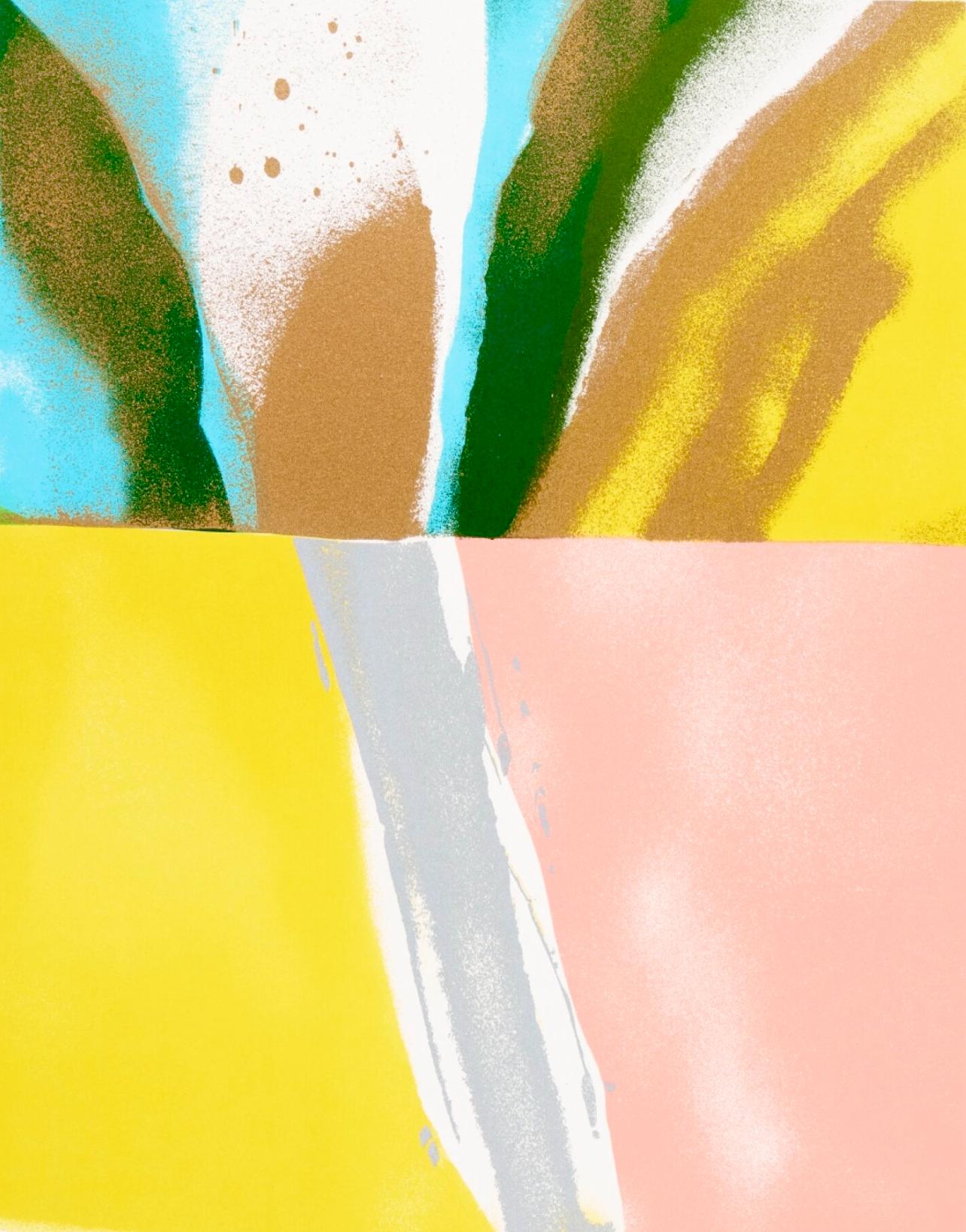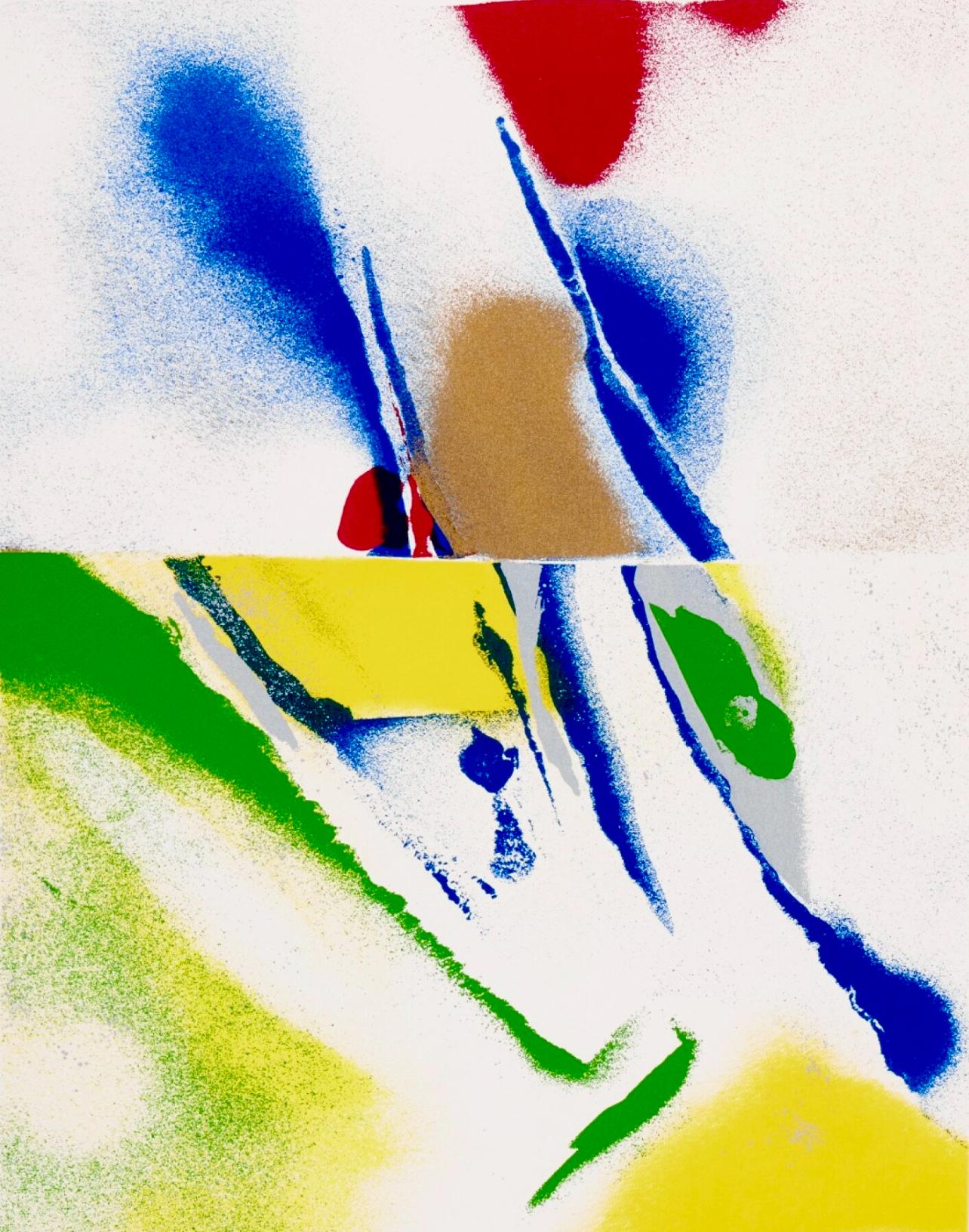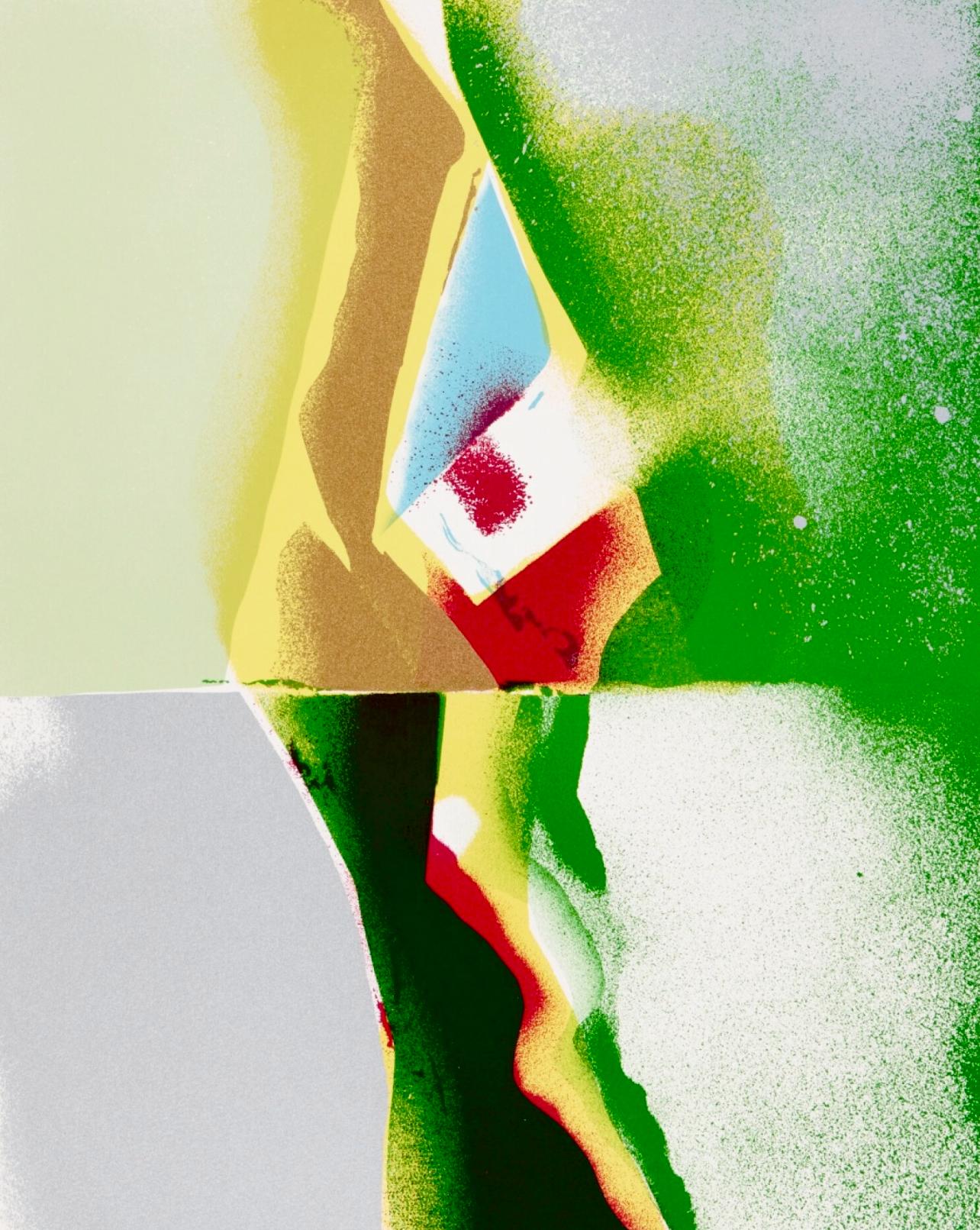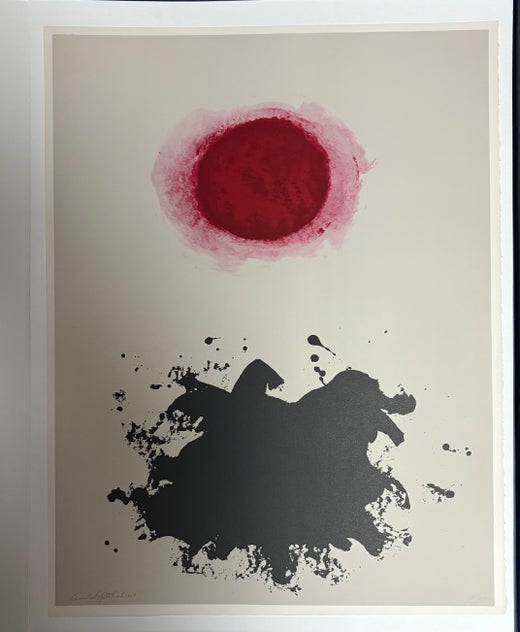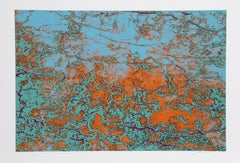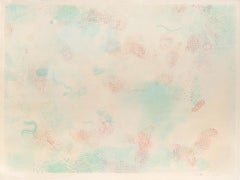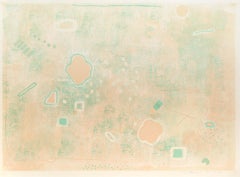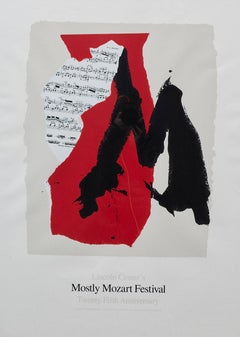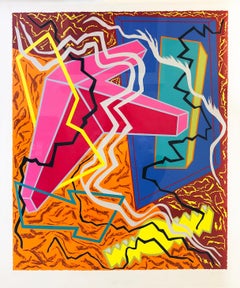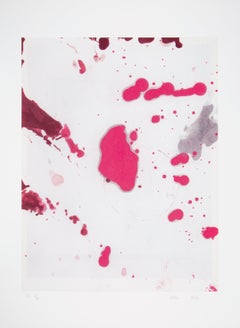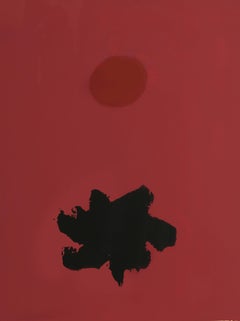
Rose Mood, Abstract Expressionist Sillkscreen by Adolph Gottlieb 1967
View Similar Items
Adolph GottliebRose Mood, Abstract Expressionist Sillkscreen by Adolph Gottlieb 19671967
1967
About the Item
- Creator:Adolph Gottlieb (1903-1974, American)
- Creation Year:1967
- Dimensions:Height: 24 in (60.96 cm)Width: 20 in (50.8 cm)
- Medium:
- Movement & Style:
- Period:
- Framing:Framing Options Available
- Condition:In very good condition.
- Gallery Location:Long Island City, NY
- Reference Number:Seller: RO784271stDibs: LU46610101182
Adolph Gottlieb
Adolph Gottlieb was an American Abstract Expressionist artist known for his prints, paintings and sculptures. He is considered one of the “first generation” of Abstract Expressionists.
From 1920–21 Gottlieb studied at the Art Students League of New York, after which, having determined to become an artist, he left high school at the age of 17 and worked his passage to Europe on a merchant ship. He traveled in France and Germany for a year. He lived in Paris for 6 months during which time he visited the Louvre Museum every day and audited classes at the Académie de la Grande Chaumière.
Gottlieb spent the next year traveling in Germany, Austria, Czechoslovakia, and other parts of Central Europe, visiting museums and art galleries. When he returned, he was one of the most traveled New York artists.
Gottlieb had his first solo exhibition at the Dudensing Galleries in New York City in 1930. During the 1920s and early 1930s, he formed lifelong friendships with other artists such as Barnett Newman, Mark Rothko, David Smith, Milton Avery, and John Graham. In 1935, he and nine others, including Ben-Zion, Joseph Solman, Ilya Bolotowsky, Louis Harris, Jack Kufeld, Mark Rothko, and Louis Schanker, known as “The Ten,” exhibited their works together until 1940. It was in the late 1930s when Gottlieb moved to the desert in Tuscon, where he moved from an Expressionist–Realist style approach to a style that combines elements of Surrealism and formalist abstraction.
Throughout his career, Gottlieb had 56 solo exhibitions and was included in over 200 group exhibitions. His works of art are in the collections of more than 140 major museums around the world.
Gottlieb was accomplished as a painter, draughtsman, printmaker and sculptor. He designed and oversaw the construction of a 1500 square-foot stained glass façade for the Milton Steinberg Center in New York City in 1954, and he designed a suite of 18 stained glass windows for the Kingsway Jewish Center in Brooklyn. He was the first of his generation to have his art collected by the Museum of Modern Art (1946) and the Guggenheim Museum (1948).
Gottlieb suffered a major stroke in 1970 that left him paralyzed except for his right arm and hand. In 1972 he was voted into the American Academy of Arts and Letters, and he continued to paint and to exhibit his art until his death in March of 1974.
Find original Adolph Gottlieb prints and other art for sale on 1stDibs.
(Biography provided by Marlborough New York)
More From This Seller
View All1970s Abstract Expressionist Abstract Prints
Screen
1980s Abstract Expressionist Abstract Prints
Screen
1970s Abstract Expressionist Abstract Prints
Screen
1970s Abstract Expressionist Abstract Prints
Screen
1970s Abstract Expressionist Abstract Prints
Screen
1970s Abstract Expressionist Abstract Prints
Screen
You May Also Like
1990s Abstract Expressionist Abstract Prints
Lithograph, Screen
1980s Abstract Expressionist Abstract Prints
Screen
1950s Abstract Expressionist Abstract Prints
Screen
Early 2000s Abstract Expressionist Abstract Prints
Screen
2010s Abstract Expressionist Abstract Prints
Paper, Screen
1970s Abstract Expressionist Abstract Prints
Screen
Recently Viewed
View AllRead More
Romare Bearden’s Humanity Infuses His Bright, Bold Art
Through collage, painting and printmaking, the artist foregrounded Black life in America in revolutionary new ways.
Chryssa’s 1962 Neon Sculpture Was Way ahead of the Art-World Curve
By working with lettering, neon and Pop imagery, Chryssa pioneered several postmodern themes at a time when most male artists detested commercial mediums.
